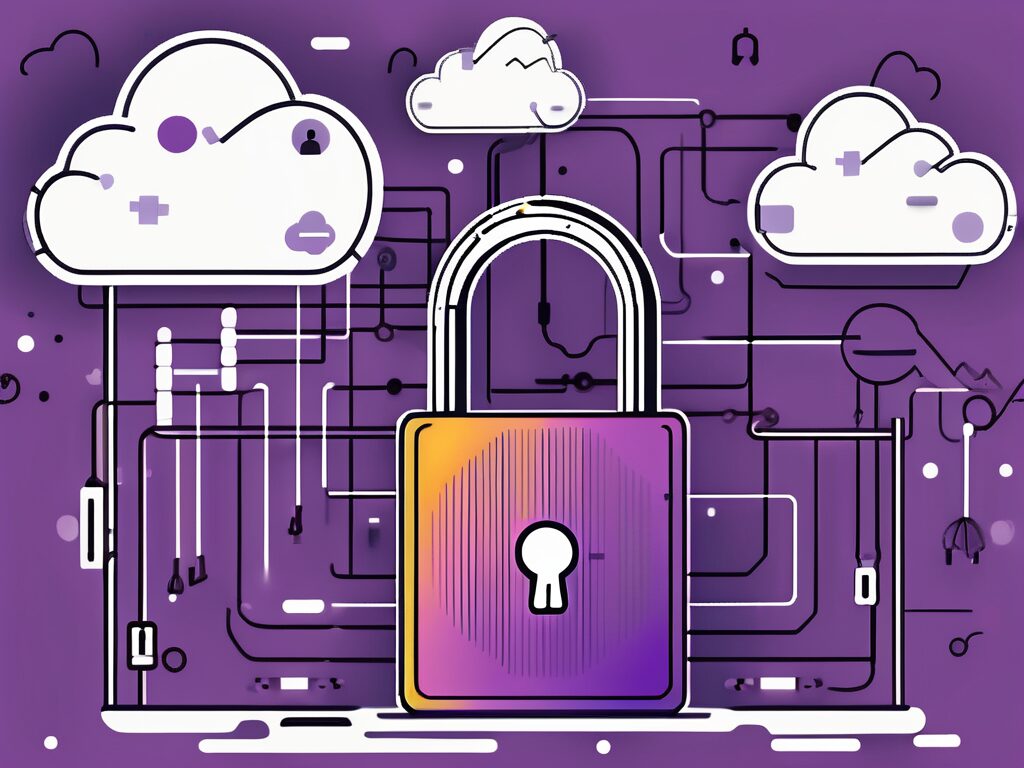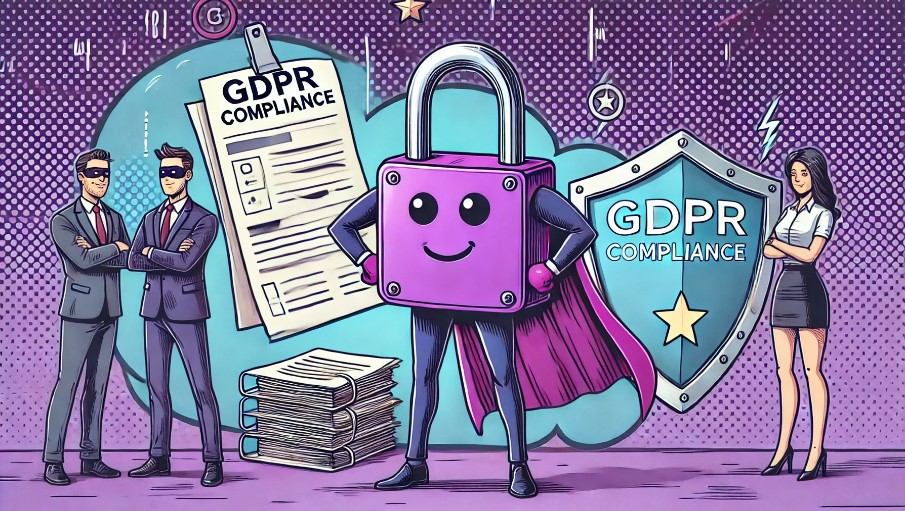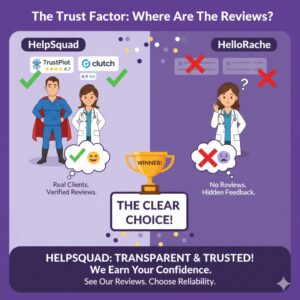GDPR Compliance
02 Feb 2024 By: Michael Kansky
Updated
The General Data Protection Regulation (GDPR) is the EU’s big rulebook on data privacy. It protects people in the EU and EEA, and even applies when companies share data outside those regions. GDPR compliance gives people control over their own information. It makes things clearer and more consistent for businesses that operate across Europe.

If you offer live chat, following GDPR is essential. You have to be careful about how you collect, store, and share user data. Mess it up, and you’re looking at big fines and a damaged reputation. This guide breaks down what GDPR means specifically for live chat services.
What is GDPR compliance?
GDPR is built on two simple principles: handle personal data legally and transparently, and only collect it for a specific reason. No surprises, no hidden use cases. Personal data basically means anything that can identify someone. This include names, IDs, locations, online identifiers, and even details tied to a person’s physical or social traits.
Since May 25, 2018, GDPR has set the global standard for data privacy. Any organization handling the data of EU citizens has to protect it, no matter where they’re located. And the penalties for getting it wrong are huge. Up to €20 million or 4% of worldwide revenue.
GDPR also places strict expectations on both Data Controllers and Data Processors. They must provide clear privacy notices, use strong security measures, and do everything possible to prevent data breaches. In short, if you work with EU customer data, GDPR compliance is the rulebook.
GDPR Principles
GDPR is built on a set of core principles that guide how personal data should be handled. These are meant to protect people’s privacy and keep businesses accountable:
- Transparency – Be upfront about what data you collect and why.
- Purpose Limitation – Use the data only for the reason it was collected.
- Data Minimization – Collect only the information you actually need.
- Accuracy – Keep all personal data correct and updated.
- Storage Limitation – Delete data when it’s no longer needed.
- Integrity & Confidentiality – Keep the data secure and protected.
- Accountability – Be ready to prove that your organization is following GDPR.
These principles help create a safer, more respectful way of handling personal information.
Lawful Basis for Processing
Under the GDPR compliance law, companies need a legal reason to use personal data. There are six reasons allowed: consent, contract, legal duty, vital needs, public tasks, and legit interests. For live chat services, consent and contracts are the big ones.
Consent is when someone explicitly agrees to let you use their personal data for a certain reason. Contract is when you need to handle their data to fulfill a contract with them, or if they need you to do something specific before making a deal.
Data Subject Rights
The GDPR gives people control over their information. You can find out how it’s used, correct mistakes, and delete it. You should also control how it’s used, move it, and refuse certain uses. They also have the right not to be just a number to an algorithm.
Live chat services, whether reactive or proactive, must ensure that they respect these rights. This means being clear about how they use personal data. Giving people ways to view, correct, delete, or move their data, challenge its use, or opt out of automatic decisions.
Unlock the power of engagement. Click here to supercharge your customer service with Proactive Chat!
How to be GDPR Compliant for Live Chat
Getting your live chat GDPR-ready involves a few key steps. First up, know what personal data you’re collecting. This isn’t just the chat messages, but also details like IP addresses, device info, and where the user is chatting from.
Then, make sure you’ve got a legit reason to use this data. Often, it’s going to be the user’s consent. You need to get this consent clearly and plainly. Plus, you should offer an easy way for users to change their minds and pull their consent whenever they want.
Data Protection Impact Assessment
For certain data uses, you might need a Data Protection Impact Assessment (DPIA). It’s a step to pinpoint and lessen privacy risks in a project. You’ll need a DPIA for any processing that poses a high risk to people. This includes extensive, tech-savvy processing or dealing with a lot of sensitive info.
For live chat, a DPIA can spot potential issues like how messages are stored and sent, the use of auto-replies, and how it works with other systems. It can also guide you in reducing these risks, through encryption, limiting who can see data, and keeping data use to a minimum.
Data Protection Officer
Under GDPR compliance law, some businesses have to name a Data Protection Officer (DPO). This person knows the ins and outs of data protection laws and helps the company stay on track. Offers advice on data protection duties, and weighs in on Data Protection Impact Assessments (DPIAs). And be the go-to for people’s questions and for talking with data protection watchdogs.
Whether a live chat service needs a DPO depends on what and how much data they handle. If a public body does the processing, if it involves a lot of tracking or deals with sensitive or criminal data on a big scale, then a DPO is a must.

Implementing GDPR Compliance
Getting your live chat GDPR-ready starts with understanding your data flow. Know what personal data comes in, where it goes, who can access it, and how it’s protected. Once you see the whole picture, it’s easier to spot risks and fix weak points.
From there, put the right safeguards in place. Things like encryption, access controls, clear policies, regular training, and routine audits. And don’t forget to set up a process for handling requests from people who want to use their GDPR rights. It’s all part of keeping data safe and doing things the right way.
GDPR Compliance Checklist
When it comes to GDPR compliance, having a simple checklist makes everything easier. It’s all about handling data collected responsibly. Here are the basics:
- Know the Data You’re Collecting – Be aware of what personal data you gather and why.
- Get Consent – Make sure users clearly agree to what they’re sharing.
- Give Users Control – Let people access, correct, or delete their information anytime.
- Secure the Data – Use strong protections to keep personal data safe.
- Prepare for Breaches – Have a plan, and report breaches within 72 hours.
- Train Your Team – Everyone who handles data should understand GDPR compliance and follow it.
GDPR Compliance Requirements
Meeting GDPR compliance isn’t just a one-time setup. It has to be part of your daily operations. Here’s what your business should be doing:
- Get Consent – Make sure users clearly agree before you collect their data. No hidden checkboxes or confusing wording.
- Appoint a Data Protection Officer – If you handle large amounts of personal data, have someone dedicated to overseeing compliance.
- Provide User Rights – Make it easy for people to access, update, or delete their information.
- Secure Data – Use encryption and other strong protections to keep data safe.
- Report Breaches – If something goes wrong, notify authorities and affected users within 72 hours.
- Regular Audits – Check your processes often to make sure you’re still on track with GDPR.
This keeps your team consistent and your business protected.
Data Protection by Design and by Default
GDPR compliance introduces the idea of “data protection by design and by default.” Basically, privacy shouldn’t be an afterthought. It has to be considered from the very beginning. This is important if you’re building a system, launching a service, or creating any process that handles personal data. Privacy should be built in, not bolted on.
For live chat services, that means limiting how much data you collect, giving users clear privacy information, letting them adjust their settings easily, and keeping everything secure from the start. It also means thinking about privacy when you connect your live chat to tools like CRMs, analytics platforms, or anything else behind the scenes.
Records of Processing Activities
The GDPR mandates that organizations keep detailed records of how they handle data. This includes why they process data. It covers what kinds of data and who it’s about. It also covers who gets the data, if it’s sent overseas, when it’s deleted, and an overview of the security steps.
For live chat services, this means logging each chat, noting when it happened, who was involved, what was said, and any follow-up actions. It also means documenting any data handling tied to the chat service. This can include analyzing chat content, providing customer support, or using the info for marketing.
Trending Now
An IBM article pointed out how GDPR has completely changed the way organizations protect the privacy of EU citizens since 2018. Even live chat services benefit from it. You build trust, stand out from competitors, and create a culture where privacy actually matters. And with fines like Meta’s €1.2 billion penalty, it’s obvious what happens when companies slip.
But GDPR isn’t just about avoiding trouble. It’s about making privacy part of how your business runs. It applies to anyone handling EU data, no matter where they’re located. When you follow it, you strengthen your reputation, earn customer confidence, and stay ahead of other privacy laws popping up around the world. GDPR compliance is a smart move for long-term trust and security.
Protect your data now! Switch to secure forms and stop breaches in their tracks!
Dealing with Data Breaches
The GDPR has strict rules for handling data breaches. These are incidents where personal data is accidentally or illegally destroyed, lost, changed, disclosed, or accessed. If a breach happens, companies must quickly work to reduce the damage. Tell the right supervisory authority, and sometimes, inform the people impacted.
For live chat services, this means putting in place ways to spot and deal with breaches. Like using systems to detect break-ins, having plans ready for responding to incidents, and knowing how to tell people what has happened. It also means training staff on how to notice and report breaches.
Data Breach Notification
Under the GDPR compliance law, if a data breach happens, organizations have 72 hours to inform the proper supervisory authority. Unless the breach isn’t likely to harm people’s rights and freedoms. If there’s a serious risk to folks, the affected individuals must be told quickly, too.
For live chat services, this means having a plan to figure out how risky a breach is. Deciding who needs to know, and getting those notifications out pronto. These alerts should explain what went wrong, and how many people and records are involved. Plus the possible impact, and what’s being done to fix it or prevent it in the future.
Data Breach Response
When a data breach happens, the first job is to stop the damage. Isolate the affected systems, block the attackers, recover what you can, and close the security gaps they used.
Next, figure out what actually happened. Collect evidence, talk to the people involved, review your logs, and document everything in a clear report. Then update your data protection practices so the same thing doesn’t happen again.
“The companies that do the best job on managing a user’s privacy will be the companies that ultimately are the most successful.”
— Fred Wilson
Conclusion
At the end of the day, GDPR is about earning trust. It protects people’s data, keeps businesses accountable, and makes sure information is used for the right reasons. And with the heavy fines for violations, every organization working with EU data needs a solid compliance plan, backed by legal guidance and a clear checklist.
Yes, GDPR can be challenging, but it’s also an opportunity. Live chat services that follow the rules build stronger trust, stand out from competitors, and create a culture where privacy actually matters.
And if you need support on the operations side, HelpSquad’s virtual assistants are here to help. Customer service, back-office work, research, and 24/7 support. Talk to us and see how much easier things get with the right team behind you.
GDPR Compliance FAQ
What is GDPR compliance for live char services?
“Live chat GDPR” simply refers to applying GDPR rules to your live chat system. Every message a customer sends (a question, complaint, or account-related issue) is considered personal data. A GDPR compliant live chat ensures that this information is collected legally, used transparently, and protected properly, following all GDPR requirements.
What makes a live chat system GDPR compliant?
A GDPR compliant live chat follows strict rules around data collection, storage, access, and deletion. This includes getting proper consent, showing clear privacy notices, using encryption, limiting data retention, and allowing users to view or erase their data. Following live chat GDPR guidelines also means being ready to respond to data rights requests and documenting how personal data flows through your system.
Does GDPR affect the way live chat tools store or process messages?
Yes. Under live chat GDPR rules, chat transcripts and customer information must be stored securely and only for as long as needed. A GDPR compliant live chat system must encrypt messages, control who has access, and ensure that any third-party integrations. This means any CRMs or analytics tools should meet GDPR compliance standards. Businesses also have to delete or anonymize data once it’s no longer required.
How can businesses make sure their live chat stays GDPR compliant over time?
Start by understanding what data your live chat collects and why. Then build safeguards like encryption, role-based access, data retention limits, and regular audits. A GDPR compliant live chat also requires training your team, updating your privacy policy, and having a plan for handling user requests about their data. Staying compliant is an ongoing process, not a one-time setup.
How do you ensure the information in this live chat GDPR compliance article is accurate and trustworthy?
All details in this article are based on official GDPR guidance, recognized industry standards, and best practices used by companies that operate GDPR compliant live chat systems. The explanations reflect widely accepted legal requirements, real-world data protection procedures, and updated information from EU supervisory authorities. Making sure everything is reliable, practical, and fully aligned with current live chat GDPR compliance expectations.


